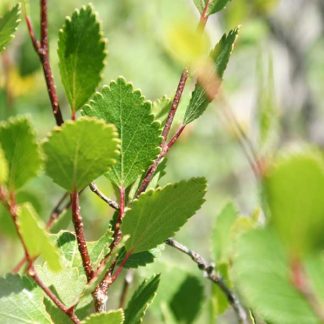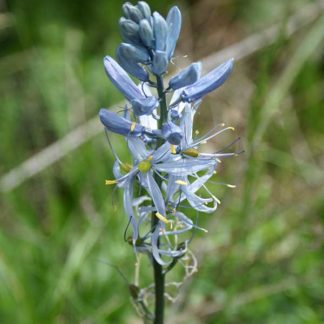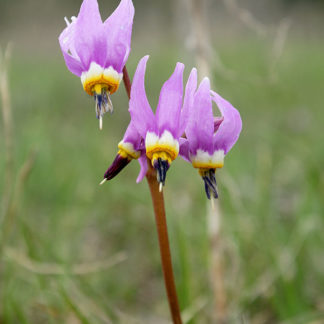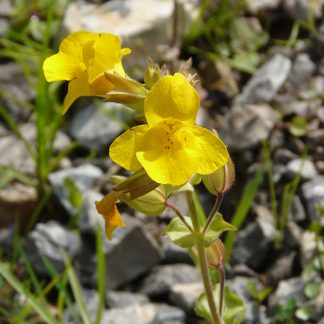wetlands
the broad area in the central valley typified by Juncus spp.
Showing 1–12 of 26 results
-

Allium schoenoprasum / chives
- globe-shaped umbels of pink flowers with darker midveins (stripes)
- hollow, tubular leaves and flower stalks
- smells like onions
- grows from bulbs in clumps or sometimes individually
- wild in wetlands, fens, meadows; cultivated in gardens
-

Angelica arguta / Lyall’s angelica
- white to yellow to pink-ish
- compound umbel with teeny individual flowers
- many-toothed compound leaves with sheath surrounding petiole
- leaflets egg-shaped to narrowly oval
- pungent parsley/celery/anise scent when leaves crushed
-

Argentina anserina / silverweed
- silvery, compound leaves on low, creeping stems
- yellow, 5+ petaled flowers; lots of stamens
- fens, other wetlands, but also roadsides
-

Betula pumila / bog birch
- limited to bogs/fens/swamps and wetlands
- shrub to about 6 feet tall
- reddish bark on twigs
- leaves rounded-fan shaped, ca. 1 inch; coarsely toothed
- inflorescences - catkins (cone-like); separate male and female
-

Camassia quamash / small camas
- immediately visible for its star-shaped blue flowers and yellow anthers
- flowers borne on a spike-like raceme, opening from the bottom up
- multiple flowers open at one time
- leaves are grass-like, growing from a bulb
- large seed capsules with ca. 30 roundish black seeds, ripe in late summer
-

Dodecatheon pulchellum / shooting star
- five pink to lavender lobes projecting backwards
- white or yellow petal bases above a squiggly purple ring
- anthers joined into a projecting point; stigma projecting past the point
- snowmelt to early spring
- wet meadows to sagebrush communities
-

Equisetum hyemale / rough horsetail
- thin green stems with black bands; no branches
- possible cone-like structure at the apex
- usually in large colonies
- prefers continuously moist soils
-

Eriophorum angustifolium / narrow-leaved cottongrass
- limited to bogs/fens with standing water
- "just a pointy-leaved plant" until the fruit develops
- fruits are big white, cotton-like tufts
-

Erythranthe guttata / seep monkeyflower
- yellow flowers with red spots in clumps of 5 or more
- flowers large for the plant, but otherwise "normal" size
- two "lips" - lower lip larger than upper, each with 2 petals
- found in wetlands of all kinds
-

Iris missouriensis / western blue flag iris
- wetland monocot - long leaves, parallel veins
- large blue flower with yellow "signal" stripe, purple veins
- 3 petals, 3 sepals make up the flower
- blooms in spring
- "like a domestic iris on a diet"
-

Mentha canadensis / American cornmint
- crushed leaves smell like peppermint
- clusters of teeny white-blue-pink flowers in the axils of stem leaves
- square stems, lance-shaped leaves
- shaded, moist areas
- may form large clones
-

Orthilia secunda / sidebell wintergreen
- evergreen herb or sub-shrub
- boggy understory and forest stream banks
- basal, egg-shaped leaves with prominent veins
- very small to teeny creamy or green-ish flowers all on one side of stem
Showing 1–12 of 26 results